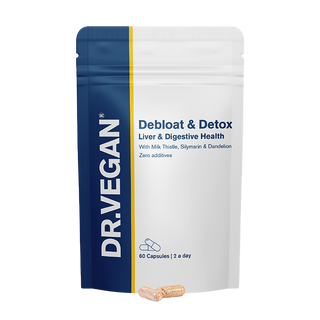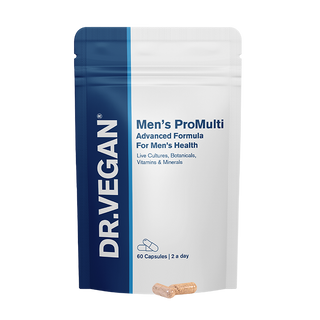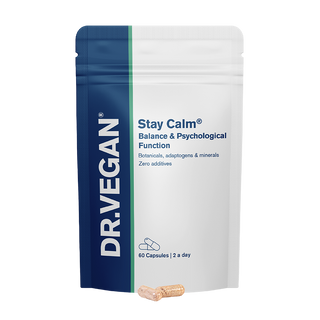¿Cómo afecta el alcohol a la salud de los hombres?

El consumo de alcohol está profundamente arraigado en muchas culturas y, a menudo, se considera una forma de socializar o relajarse. Sin embargo, el consumo excesivo de alcohol plantea riesgos importantes para la salud de los hombres y afecta el bienestar físico, mental y reproductivo. Con el tiempo, el consumo excesivo de alcohol puede provocar problemas de salud graves, incluidas enfermedades crónicas, desequilibrios hormonales y trastornos de salud mental . Comprender estos efectos y cómo controlar el consumo de alcohol es fundamental para la salud y la calidad de vida a largo plazo.
¿Cuánto alcohol deben beber los hombres por semana?
En el Reino Unido, se recomienda a hombres y mujeres que no consuman más de 14 unidades de alcohol por semana, repartidas en tres o más días. Esta pauta equivale a unas seis pintas de cerveza de concentración media o diez vasos pequeños de vino. Beber menos siempre es más seguro y los días sin alcohol pueden ayudar a reducir el impacto general en la salud. Superar regularmente este límite aumenta el riesgo de enfermedades como enfermedades hepáticas, cardíacas y ciertos tipos de cáncer.
Quizás te interese leer ' ¿El vino es bueno para ti? '.
Debloat & Detox

Signos de dependencia del alcohol
La dependencia del alcohol se desarrolla cuando beber se convierte en una prioridad sobre otros aspectos de la vida. Las señales de advertencia incluyen:
- Un fuerte deseo o compulsión de beber.
- Dificultad para controlar la ingesta de alcohol.
- Síntomas de abstinencia como sudoración, temblores o ansiedad cuando no se bebe.
- Priorizar el alcohol sobre las responsabilidades y las relaciones.
Reconocer estos signos a tiempo y buscar ayuda es fundamental para evitar un mayor deterioro de la salud. Descubre 5 señales de que tu hígado necesita una desintoxicación y los mejores alimentos para desintoxicar tu hígado .

Efectos del alcohol en los hombres.
Impacto físico
El consumo excesivo de alcohol afecta significativamente la salud física de los hombres. Los efectos a largo plazo incluyen daño hepático , problemas digestivos, sistema inmunológico debilitado y riesgos de cáncer.
El alcohol irrita el revestimiento del estómago, provoca gastritis y úlceras, y aumenta el riesgo de irritación pancreática. Beber con frecuencia puede suprimir la función inmune, haciendo que los hombres sean más vulnerables a las infecciones.
El consumo crónico de alcohol provoca enfermedades hepáticas como hígado graso, hepatitis y cirrosis. El consumo excesivo de alcohol también puede aumentar la presión arterial , elevar los niveles de colesterol y contribuir a las arritmias. También se sabe que el alcohol es un factor de riesgo de cáncer de boca, garganta, esófago, hígado e intestino.
Implicaciones para la salud mental
Los efectos del alcohol a menudo pueden exacerbar o desencadenar condiciones de salud mental. El alcohol es un depresor que puede empeorar los sentimientos de tristeza y ansiedad.
Si bien el alcohol inicialmente puede inducir el sueño, altera la calidad del mismo, provocando fatiga , falta de concentración y trastornos del sueño. El uso regular puede alterar la química cerebral, haciendo más difícil controlar los antojos. El consumo excesivo de alcohol a largo plazo puede afectar la memoria, el aprendizaje y las habilidades de toma de decisiones, provocando un deterioro cognitivo. Descubre los peores alimentos para la memoria .
Libido y hormonas
El alcohol también puede interferir con la salud sexual y reproductiva masculina de varias maneras, desde desequilibrios hormonales y disfunción eréctil hasta una reducción de la calidad del esperma y un aumento temporal de la libido.
Beber en exceso reduce los niveles de testosterona , afectando la libido, la energía y la masa muscular. Si bien el alcohol inicialmente puede reducir las inhibiciones, beber en exceso a menudo reduce el desempeño y la satisfacción sexual. También afecta el flujo sanguíneo, lo que dificulta lograr y mantener erecciones. El abuso crónico de alcohol exacerba este problema. Quizás te interese leer los pasos para mejorar tu libido a medida que envejeces o la conexión entre el intestino y la disfunción eréctil .
Los estudios demuestran que el consumo de alcohol tiene un impacto en la calidad del esperma. Disminuye el recuento, la motilidad y la morfología de los espermatozoides, lo que afecta negativamente a la fertilidad. Obtenga más información sobre el microbioma del semen o descubra cómo los espermatozoides pueden afectar el riesgo de diabetes .
Pasos para reducir el consumo de alcohol
Reducir el consumo de alcohol requiere compromiso y ajustes en el estilo de vida. Aquí hay pasos prácticos:
Cambios en el estilo de vida
Ejercicio: la actividad física regular reduce el estrés y proporciona una alternativa saludable a la bebida.
Nutrición: llevar una dieta equilibrada rica en alimentos integrales favorece la salud del hígado y estabiliza los niveles de energía. Si no está seguro de qué nutrientes le pueden faltar a su dieta, consulte nuestro Perfil de dieta gratuito y descúbralo en 3 minutos.
Suplementos: considere suplementos como Stay Calm® de DR.VEGAN para controlar el estrés , vitamina D3 para contrarrestar las deficiencias relacionadas con el consumo de alcohol y una multivitamina diaria para garantizar una ingesta adecuada de nutrientes. Quizás le interese probar Men's ProMulti , una fórmula todo en uno de bacterias activas ("probióticos"), prebióticos, ingredientes botánicos, aminoácidos, vitaminas y minerales para satisfacer las cambiantes necesidades de salud de los hombres mayores de 45 años. Está especialmente formulado para respaldar la salud de la próstata, la salud de la testosterona, la vitalidad diaria y el bienestar.
Men's ProMulti

Busque ayuda profesional
Si reducir el consumo de alcohol resulta difícil, busque ayuda:
- Reserve una cita con su médico de cabecera para obtener asesoramiento y recursos personalizados.
- Acceda a grupos de apoyo como Alcohólicos Anónimos (AA).
- Consulte a un terapeuta especializado en adicciones para obtener estrategias de afrontamiento y terapia conductual.
Conclusión
Si bien el consumo moderado de alcohol puede tener cabida en contextos sociales o recreativos, el consumo excesivo o regular plantea graves riesgos para la salud de los hombres. Desde complicaciones físicas como daños hepáticos y cardíacos hasta problemas de salud mental y problemas reproductivos, los efectos del alcohol pueden impregnar todos los aspectos de la vida. Tomar medidas proactivas para controlar el consumo de alcohol mediante cambios en el estilo de vida, orientación profesional y suplementos puede conducir a una mejor salud y bienestar. Reconocer los riesgos a tiempo y actuar en consecuencia garantiza que los hombres puedan mantener su salud física y mental a largo plazo.
Vea nuestra gama de suplementos y probióticos galardonados .
Puede que disfrutes leyendo:

















